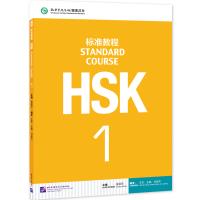 |
As a monograph on causative VO compounds (such as 健身, 美容, 喜人, and 醉心) whose surface structure
and deep structure differ, this book studies the subject from the syntactic,
morphological and semantic aspects, with construction grammar as its
theoretical foundation. Based on a review of how the construction of modern
Chinese causative VO compounds has been formed, this book gives a detailed
analysis of three types of causative VO compounds in terms of their
constructional meaning, syntactic transformation, semantic characteristics,
semantic relations, and the unsymmetrical correspondence between the
constructional meaning and the constituent meaning. It discusses the influence
of causative VO compounds on the constituents’ semantic development and
functional evolution and the formation and expansion of the set of compound
words from both diachronic and synchronic perspectives, and analyzes the
syntactic and semantic factors that contribute to the prototypical/peripheral
status of causative VO compounds. A comparison with other morphological models
that have vacancy within verifies the necessity and linguistic significance of
establishing the construction of causative VO compounds, and a questionnaire
test carried out among L2 Chinese learners shows that the relation between the
form and meaning of compound words should be given more attention to in Chinese
vocabulary teaching.
|

















